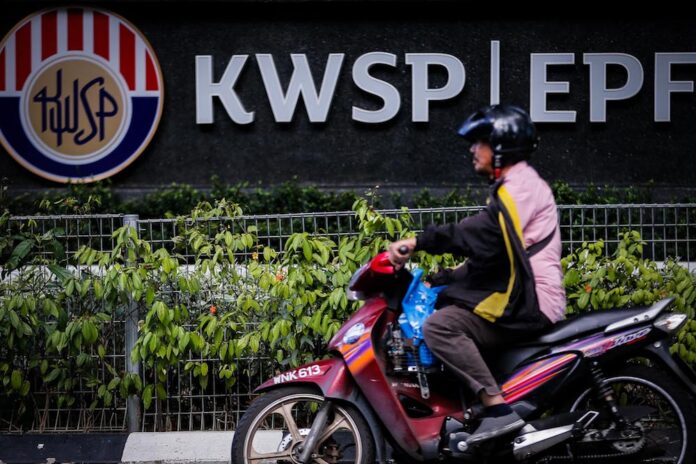In a statement today, the retirement fund asserted its commitment to help its members rebuild their retirement income adequacy and supports the discontinuation of any further withdrawals of EPF savings under the i-Citra scheme. — Picture by Hari Anggara
KUALA LUMPUR, Dec 28 — The Employees Provident Fund (EPF) sees fewer withdrawals by its members in the future to safeguard its future retirement needs and wellbeing.
In a statement today, the retirement fund asserted its commitment to help its members rebuild their retirement income adequacy and supports the discontinuation of any further withdrawals of EPF savings under the i-Citra scheme.
“The EPF is first and foremost a retirement fund that is mandated to safeguard members’ savings for their future retirement needs and wellbeing,” it added.
Established since 1951, EPF stressed it is governed by the EPF Act 1991 which stipulates that the Account 1 (70 per cent of savings) is designated for retirement, while Account 2 (30 per cent of savings) is meant for discretionary withdrawals aimed at securing a brighter retirement in the future.
“There is, however, no provision in the act that permits withdrawals under natural disasters,” it stressed.
EPF said it is appreciative of the country’s union and employer organisations, such as the Malaysian Trades Union Congress and the Malaysian Employers Federation, which had expressed their concerns over the future retirement of workers in Malaysia and called for the discontinuation of further withdrawals of EPF funds.
In this regard, the retirement fund has offered its support through resources within its means, which includes an allocation of RM10 million, which comes from savings derived from EPF’s budgeted operational expenditure, as part of the Government-Linked Investment Companies (GLICs)/Government-Linked Companies (GLCs) Disaster Response Network (GDRN).
“The EPF wishes to stress that there will be no material impact on members’ funds or returns as the allocation is from budgeted operational expenditure. The aid will be through in-kind donations only consisting of items needed by those affected and channelled via accredited non-profit charity organisations,” it added. — Bernama


